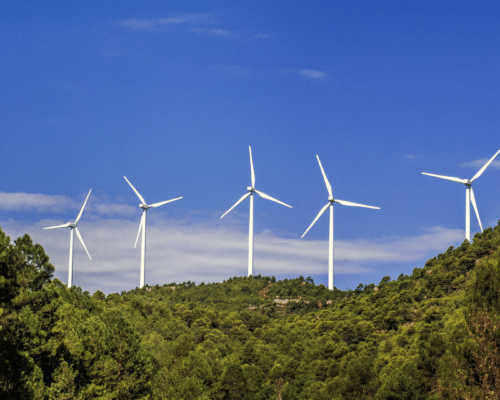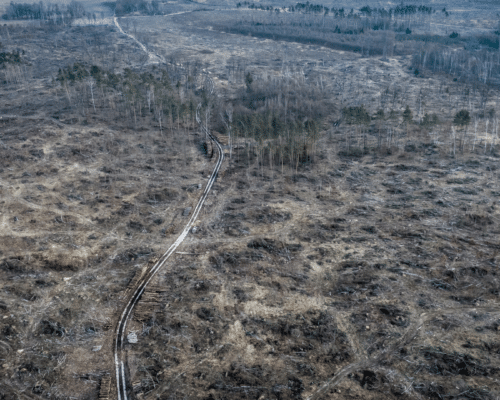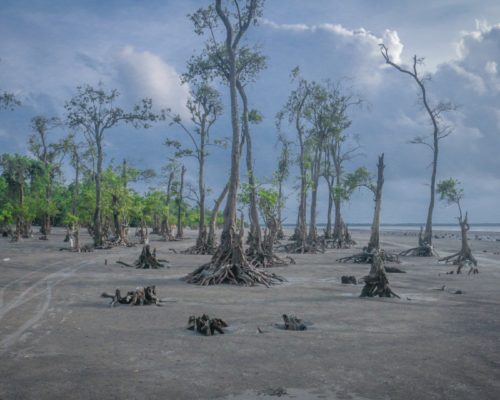Africans Want Renewables, Not Fossil Fuel Funding from G7
Presidential Press Service/Handout via REUTERS
05 May 2023 – by Thuli Makama, Amos Yesutanbul Nkpeebo, Daniel Ribeiro & Salome Nduta
Ahead of the Japan-hosted G7 leaders’ summit in May, Japan’s Prime Minister, Fumio Kishida, is on a tour of Africa until Friday. He is visiting Egypt, Ghana, Kenya and Mozambique as G7 chair to “increase (Japan’s) involvement in the Global South”. Japan has been criticised by fellow G7 members for using its role as G7 host to promote its fossil fuel-heavy energy strategy across Asia and worldwide.
Africa – the continent worst hit by the climate crisis with the biggest energy access gap and the highest renewable energy potential – does not need more investment in fossil fuels. Kishida cannot be allowed to promote fossil-fuel dependency on the African continent. He must listen to the African people who want a just transition to 100% renewable energy.
As African civil society organisations, we have one message to rich countries: Don’t Gas Africa. With 600 million Africans lacking access to clean, modern energy, we say scaling up cheap, decentralised, renewable energy is the fastest and best way to end energy exclusion and meet the needs of Africa’s people.
Last month, G7 environment, energy and climate change ministers met in Sapporo, Japan, to discuss the response to the fossil energy crisis linked to the war in Ukraine while meeting climate goals. Japan tried to convince the G7 to endorse investments in gas and liquified natural gas (LNG) and fossil-fuel-based technologies that extend the lifetime of fossil fuel assets, such as ammonia, but the UK, France and Canada pushed back.
The ministers instead agreed “to accelerate the phase-out of unabated fossil fuels to achieve net zero in energy systems by 2050 at the latest in line with the trajectories required to limit global average temperatures to 1.5°C.” They also highlighted that they “ended … public support for the international unabated fossil fuel energy sector in 2022, except in limited circumstances clearly defined by each country consistent with a 1.5°C warming limit.”
These are critical commitments. According to the International Energy Agency (IEA), respecting the 1.5°C warming limit means there can be no investments in new coal, oil, gas supply or LNG infrastructure without stranded assets. In addition, it is a myth that fossil fuels support development. For decades, the resources and profits from fossil fuel extraction in Africa have been exported to the richest countries, while communities are left behind with pollution, inequality and poor energy access.
Shifting to renewable energy and phasing out fossil fuel reliance will permanently bring down soaring energy costs and increase energy security. Renewable technologies are more affordable, can be scaled up rapidly, and do not introduce further volatility through increased climate damages, fiscal instability, and stranded asset risks as global gas demand drops. They can also be community-led and owned and can better reach rural communities.
Mozambique Gas Woes
Despite longstanding commitments to align financial flows with climate goals, data from Oil Change International shows that between 2020 and 2022, the G7 governments provided at least $73 billion in international public finance for fossil fuel projects, almost 2.6 times their clean energy support over the same period ($28.6 billion). The G7 ministers claim they have ended this fossil fuel finance, but the data shows this is untrue. The Japanese export credit agency, the Japan Bank for International Cooperation, has financed a new gas project in Uzbekistan in 2023 and approved support for LNG imports. Prior to the 2022 deadline for ending fossil fuel support, it backed a massive gas development in Mozambique, with devastating consequences – and Japan is considering additional financial support.
Almost all international public finance for gas developments in Mozambique has gone to facilities supporting gas exports rather than increased energy access. The gas sector has exacerbated the ongoing conflict in the region, the environment is polluted, and the region’s climate vulnerabilities have worsened, while local communities have seen little to no socioeconomic benefits.
Rather than bringing outdated and climate-destroying fossil fuel technologies to Africa, Japan should meet its G7 promise to end international finance for fossil fuels and instead ensure that, together with fellow rich countries at the G7 Leaders’ Summit in May, it delivers its fair share of climate finance, loss and damage funding and just energy transition support to the Global South.
By shifting support away from fossil fuels, the G7 can increase their clean energy finance to at least $34 billion, a sum almost large enough to close the global clean energy access finance gap, estimated at $36 billion. This is the only effective route to securing a more secure, prosperous future – for Africa and worldwide.
Thuli Makama is Africa Programme Director for Oil Change International, Amos Yesutanbul Nkpeebo is a climate change campaigner based in Ghana, Daniel Ribeiro works with Justiça Ambiental JA!/Friends of the Earth Mozambique and Salome Nduta is at OilWatch Africa.
Disclaimer: The views and opinions expressed in this article are those of the author and do not necessarily reflect the official policy or position of Energy Tracker Asia.
This article was originally published on Thomson Reuters and reused with permission.




